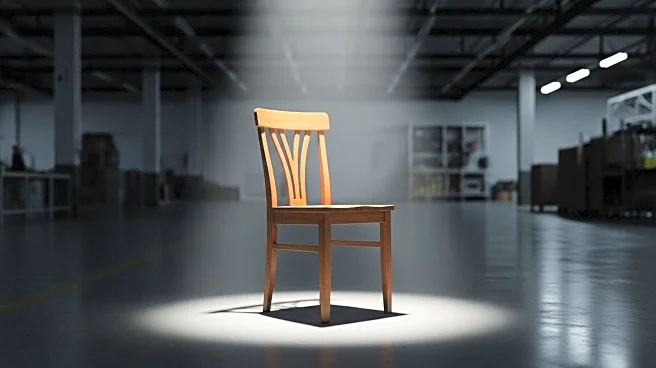What's Happening?
President Trump has announced his intention to impose significant tariffs on furniture imports if the United States does not ensure domestic production. This move is part of a broader strategy to boost U.S. manufacturing and address trade imbalances. Last week, Trump announced tariffs of 50% on kitchen cabinets and bathroom vanities, and 30% on upholstered furniture, which are set to take effect soon. The tariffs are aimed at countries that do not manufacture furniture in the U.S., potentially impacting prices and market dynamics. The U.S. Department of Commerce reports that furniture prices have been rising due to restrictions from major suppliers like China and Vietnam. The Consumer Price Index indicates a significant increase in furniture costs over the past year.
Why It's Important?
The proposed tariffs could have significant implications for the U.S. furniture market and manufacturing sector. By imposing tariffs, Trump aims to encourage domestic production and reduce reliance on foreign imports. This could lead to higher prices for consumers and changes in product availability. The tariffs may also affect international trade relations, particularly with countries that are major suppliers of furniture to the U.S. Additionally, the move could influence political dynamics, especially in states like North Carolina, which are key players in the furniture industry. The potential legal challenges to these tariffs could also impact their implementation and effectiveness.
What's Next?
The furniture market is expected to experience further changes as manufacturers and suppliers adjust to the new tariffs. Analysts are assessing the potential consequences, including reduced access to cheaper imported components and restructuring of supply chains. There is also anticipation of increased investment in American manufacturing. The legal landscape may shift depending on the outcome of a major Supreme Court case regarding the legality of country-specific tariffs. If the court rules against the administration, businesses could be reimbursed for tariffs paid, affecting future tariff policies.










